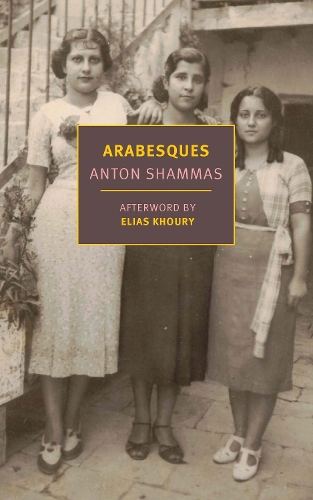
Arabesques
(Paperback)
Publishing Details
Arabesques
By (Author) Anton Shammas
Translated by Vivian Eden
Afterword by Elias Khoury
New York Review Books
NYRB Classics
7th March 2023
17th January 2023
United States
Classifications
General
Non Fiction
Modern and contemporary fiction: literary and general
892.436
Physical Properties
Paperback
280
Width 128mm, Height 203mm, Spine 2mm
295g
Description
A luminous, inventive, and deeply personal exploration of living in the liminal space between Jewish and Arab, ancient and modern, by a gifted Palestinian writer. Chosen by The New York Times as one of the best books of 1988, Arabesques is a luminous novel that engages with history and politics not as propaganda but as literature. That engagement begins with the language in which the book is written- Anton Shammas, from a Palestinian Christian family and raised in Israel, wrote in Hebrew, as no Arab novelist had before. The choice was provocative to both Arab and Jewish readers. Arabesques is divided into two sections- "The Tale" and "The Teller." "The Tale" tells of several generations of family life in a rural village, of the interplay of past and present, of how memory intersects with history in a part of the world where different people have both lived together and struggled against each other for centuries. "The Teller" is about the writer's voyage out of that world to Paris and the United States, as he comes into his vocation as a writer, and raises questions about the authority of the storyteller and the nature of the self. Shammas's tour de force is both a personal and a political narrative-a reinvention of the novel as a way of envisioning and responding to historical and cultural legacies and conflicts.
Reviews
Has the dawning of self-consciousness ever been so delicately conveyed Ratik Asokan, The Yale Review
Intricately conceived and beautifully written. . . . A crisp, luminous, and nervy mixture of fantasy and autobiography. . . [and] an elegant example of postmodern baroque. John Updike, The New Yorker
This book is a history of its authors youth and the memoir of a family and a fabled regionGalilee. . . A beautifully impressive piece of prose. William H. Gass, New York Times Book Review
Arabesques is a classic of the exploration of identity. . . A Palestinian master of Hebrew, living at the seam between the ancient and the modern, between loyalties and appetites, Shammas has written beautifully about his search for design. He transforms fact into fantasy without changing a thing. Leon Wieseltier
Arabesques really brings, as novels were once supposed to bring, news from elsewhere. . . This book has already added something notable to Israeli literature. Irving Howe, The New York Review of Books
If Hebrew literature is at all destined to have its Conrads, Nabokovs, Becketts and Ionescos, it could not have hoped for a more auspicious beginning. Muhammad Siddiq, Los Angeles Times Book Review
Author Bio
Anton Shammas (b. 1950) is a Palestinian writer and translator of Arabic, Hebrew, and English. His novel Arabesques, originally published in Hebrew in 1986 and translated into nine languages, was chosen by The New York Times Book Review as one of the best seven works of fiction of 1988. A professor emeritus of comparative literature and Middle East studies at the University of Michigan, Ann Arbor, Shammas's essays have been published in Harper's, The New York Times Magazine, Critical Inquiry, and The New York Review of Books. Vivian Eden is an American poet and translator who lives in Jerusalem and works on the staff of Haaretz. Elias Khoury is a literary critic, novelist, editor, playwright, activist and public intellectual. The author of twelve novels,Khoury's work has been translated into numerous languages, and he is considered one of the foremost novelists writing in Arabic today.
